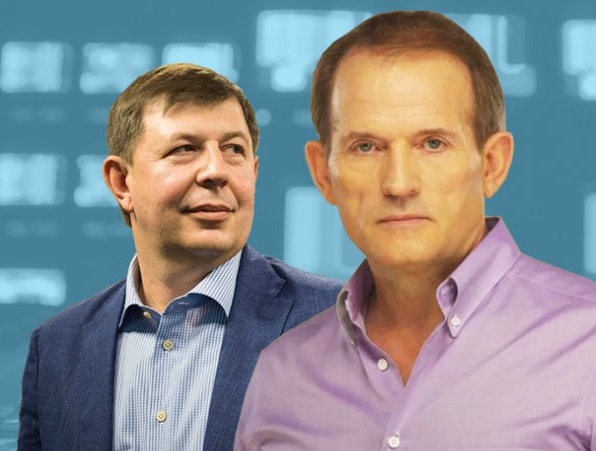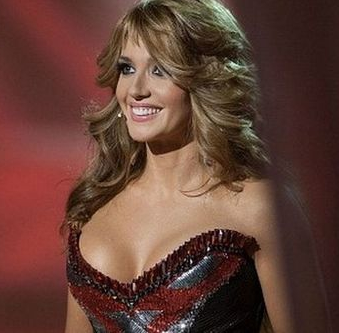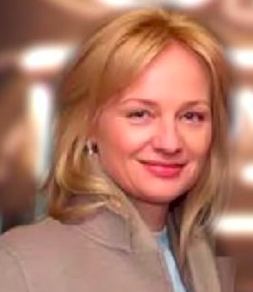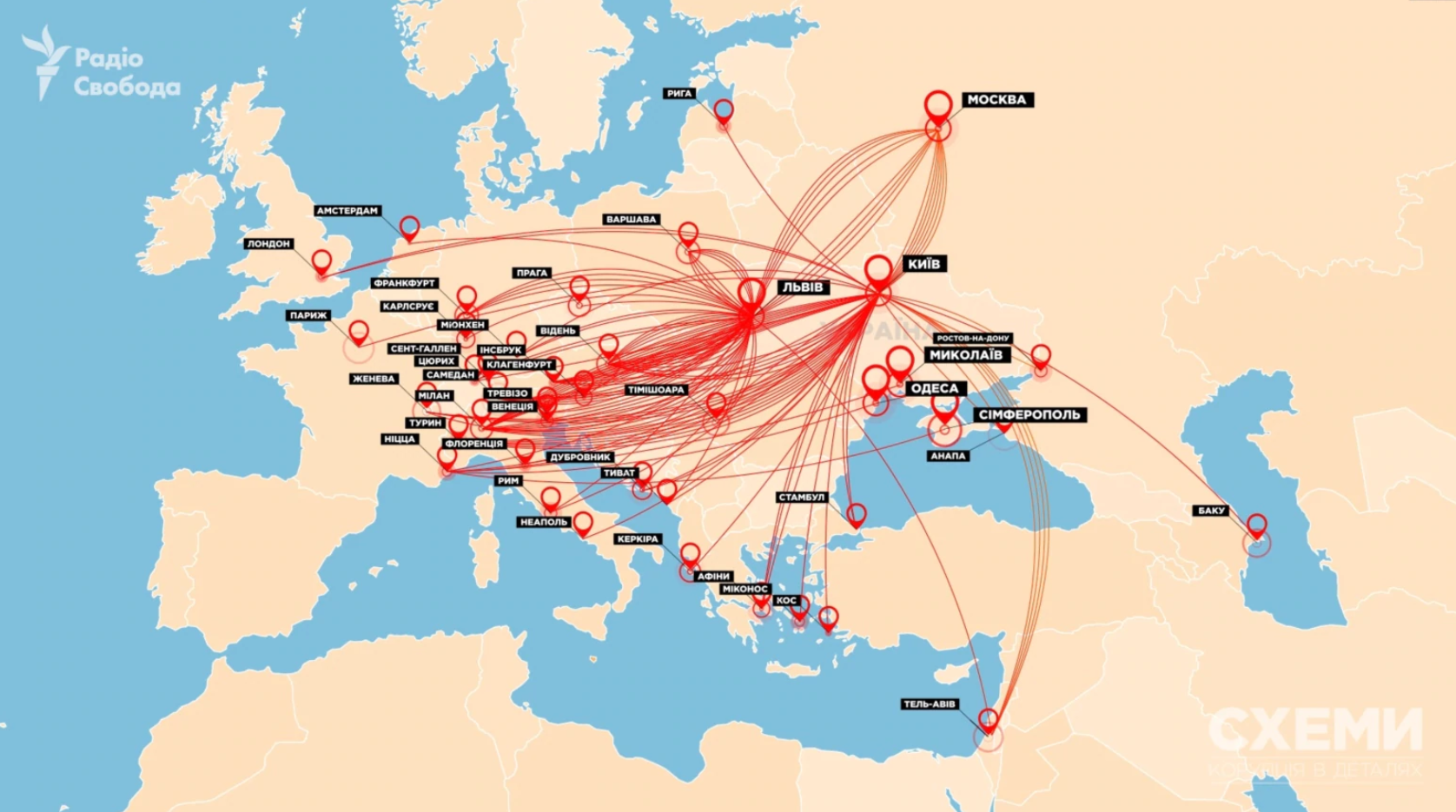In the first days of February 2021, Ukraine took steps to shut down the main sources of pro-Russian propaganda in the country, which are traced to Putin's "Number One" man in Ukraine, Viktor Medvedchuk, and his close business associate Taras Kozak. While the reasoning behind the decision was not yet made public, we investigated where the two men get their money. (Spoiler: it's actually not theirs, it's their wives').

"As for Medvedchuk's party, there are big questions ... Where did they get the money to finance the party? Where did they get the money to finance the TV channels? We have the answers – the amounts of cache, from where and from which country they get it all. And it will be a very loud story which will end very badly," said Zelenskyy in his interview dedicated to the first 100 days of presidency, on 31 August 2019.Indeed, the question of utmost importance was: do Medvedchuk and Kozak receive financial aid from Russia? Or are they just Ukrainian oligarchs who like other oligarchs attain profits through corrupt schemes, but in Ukraine? Importantly, the Ukrainian Security Service (SBU) claimed it has evidence proving Kozak received funds for his propagandist TV channels from coal businesses protected and supported by L/DNR militants. The security service did not publish evidence since it is classified. The following is what Ukrainian journalists have been able to investigate in recent years about Medvedchuk and Kozak, particularly their profits gained unscrupulously from Russia and L/DNR.
Their gains have not just come from Russian businesses but very likely as “gifts” by Putin himself to support his allies in Ukraine

“Medvedchuk, leader of NGO Ukrainian Choice, is being designated for threatening the peace, security, stability, sovereignty, or territorial integrity of Ukraine, and for undermining Ukraine’s democratic institutions and processes. He is also being designated because he has materially assisted, sponsored, or provided financial, material, or technological support to Yanukovych and because he is a leader of an entity that has, or whose members have, engaged in actions or policies that undermine democratic processes or institutions in Ukraine.”This sanction limited the possibilities for Medvedchuk’s companies. To skirt the repercussions, he registered all his business holdings to his wife Oksana Marchenko. Medvedchuk said:
"My wife is not in business, she owns it. And I manage it. Why can't I own a business? Because my ‘beloved’ Americans have imposed sanctions on me since March 2014."

In 2015, the Russian authorities announced a tender for the right to extract oil at one of the three largest fields in the Khanty-Mansi Autonomous Okrug – Gavrykovskiy. The competition immediately raised a scandal due to a strange requirement for the applicants -- only those companies that had oil refineries in the Rostov Oblast could stand to win the tender.
There was only one such company. Due to these discriminatory conditions (as reported by the Russian newspaper Kommersant), the state giant Rosneft tried to sue, but soon, for unknown reasons, simply withdrew its application.
Why did Rosneft, controlled by Putin’s man Igor Sechin, withdraw the complaint? Likely, because the factory was destined for another purpose.


Not only Russians but L/DNR militants too supported Kozak and Medvedchuk in their business activity, contrary to Ukrainian laws
Although the SBU has refrained from publishing any evidence proving the Donbas coal companies are behind Kozak’s funding for TV channels, as early as 2016 investigative journalists published reports that shed light on Kozak’s and Medvedchuk’s illegal activity. In 2015, when Donbas was occupied by Russia, Ukraine lost 88 coal mines, which led to a serious deficit of coal. The two business moguls illegally sold coal from occupied mines to state-owned power plants at a great profit. According to Ukrainska Pravda, they had the coal smuggled in from the L/DNR under the guise of South African coal.Officially, the key trader who sold coal to Ukraine in 2015 was Arida Global Limited. The company sold 76,000 tons of coal that were allegedly shipped from the South African Republic to Russian Rostov by a single freighter MV MBA MOONRAY and then transported to Ukraine by rail. The story does not add up for a number of reasons.
- The ship did not enter the Black Sea in 2015;
- The ship could only carry a maximum of 57,000 tonnes, not 76,000;
- The route itself is strange. Why go through Russia, if Ukrainian ports are closer and the coal could be transported there directly?

Gas and gas stations: another business in Ukraine dependent on Russian imports
Kozak and Medvedchuk also have sources of profit in Ukraine. However, the story of their entire business empire is full of corrupt machinations dating back to the late 1990s, as well as more recent practices of tax evasion and artificial monopolization of the market. A major source of profit is selling liquefied gas to Ukraine. The gas is usually imported from Russia, Belarus, or the US In 2016, four companies linked to Medvedchuk managed to expel 16 companies from the market, using SBU officials. The officials were most likely bribed and employed a number of tactics to undermine the competition. They constantly subjected other companies to spot checks, thus delaying their transport of cisterns. They were lenient in dealing with complaints about the Medvedchuk circle. These ploys were well established by the Skhemy investigation. In effect, the companies linked to Medvedchuk were selling Russian gas exclusively and pocketing all the profits. Moreover, as an investigation by the business site Liga revealed in 2016, entities affiliated with Medvedchuk and Kozak, including the above-mentioned Arida, took control over the gas stations in Ukraine that had previously belonged to the Russian giant Rosneft.In sum, an important share of the coal, oil, and gas markets of Ukraine, largely dependent on Russian imports, fell into the hands of pro-Russian oligarchs. It follows from the published reports of investigative journalists that former Russian business entities -- both in Ukraine and in Russia, -- as well as the coal industry in occupied L/DNR, were deliberately transferred to Medvedchuk and Kozak.
Local enterprises also underpin Kozak’s and Medvedchuk’s financial possibilities
Medvedchuk’s wife owns more than 10 companies in Ukraine, and in various sectors: real estate, construction, agriculture, timbre, and financial services. Importantly, three of her entities founded the Tavria-Invest company in occupied Crimea, abiding by Russian laws. The company conducts lucrative land rental in Crimea. Kozak has been involved in several corruption scandals. In particular, he is an active player in the Ukrainian tobacco business. He owns significant shares in the Tedis company which has been accused of tax evasion. Kozak is a regional Lviv magnate who created a business empire due to his quick rise in the regional customs department. In 2019, Kozak stood third among Ukrainian MPs in dividends, collected primarily from his offshore companies. Significant business enterprises in Ukraine are registered to members of his family, including the huge hotel complex Navaria near Lviv. His brother owns construction companies and major trade squares, as well as a number of smaller enterprises. An interesting case is the Halytska Ahrarna Compania (Galician agrarian company) which is co-owned by Medvedchuk’s wife Oksana and Kozak, demonstrating yet another close tie between the two pro-Russian politicians. Not surprisingly, Medvedchuk, being among the Top 10 richest people in Ukraine (and only in terms of his official assets) has been boasting about some extra-luxurious assets. He is an owner of the Royal Romance yacht, purchased in 2015 for EUR 180 mn.
Although the official SBU report has not yet been published to explain the evidence behind the recent ban of Kozak’s assets, including TV channels, all the available information at the moment shows that both Medvedchuk and Kozak actively conduct business in the Russian aggressor state, including occupied Crimea and Donbas, contrary to Ukrainian laws. The profits are used for pro-Russian propaganda in Ukraine. Also, by facilitating illegal imports from Russia and occupied Donbas to Ukraine, Medvedchuk and Kozak indirectly financially support the L/DNR militants.
Read also:
- Putin’s Number One man in Ukraine sues media to hide Soviet past
- “Medvedchuk effect”: censorship attempt fails in Ukraine as prohibited book sold out within an hour
- Turns out Putin’s man in Ukraine co-owns country’s most popular TV channel
- Viktor Medvedchuk: Crimea is Russia and Ukraine is a colony of the West
- How important were the Soviet dissidents: the case of Ukraine

